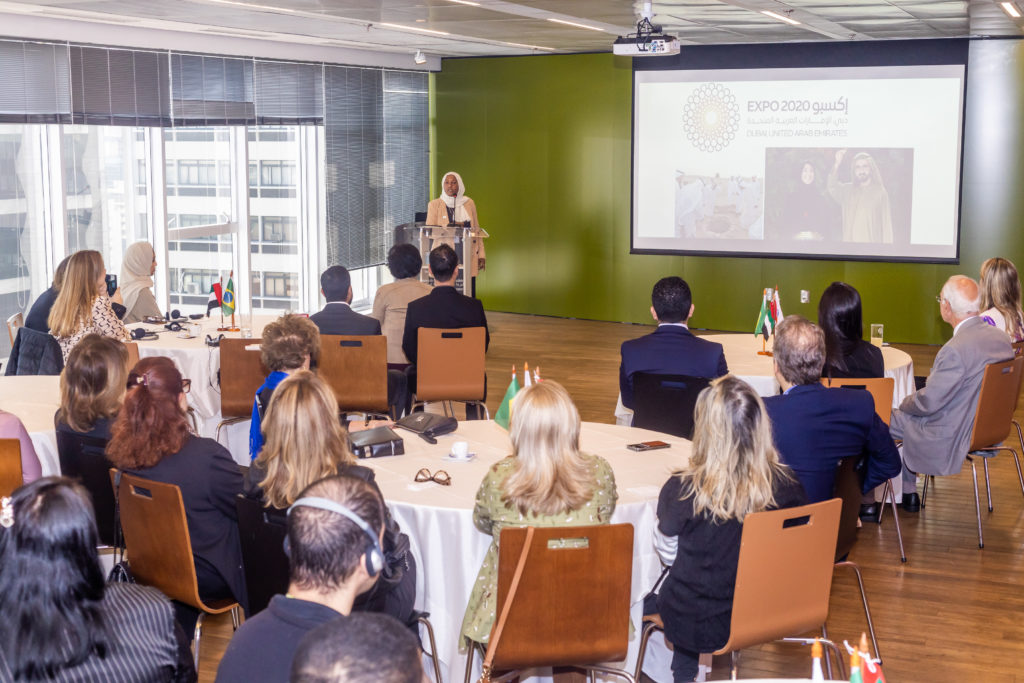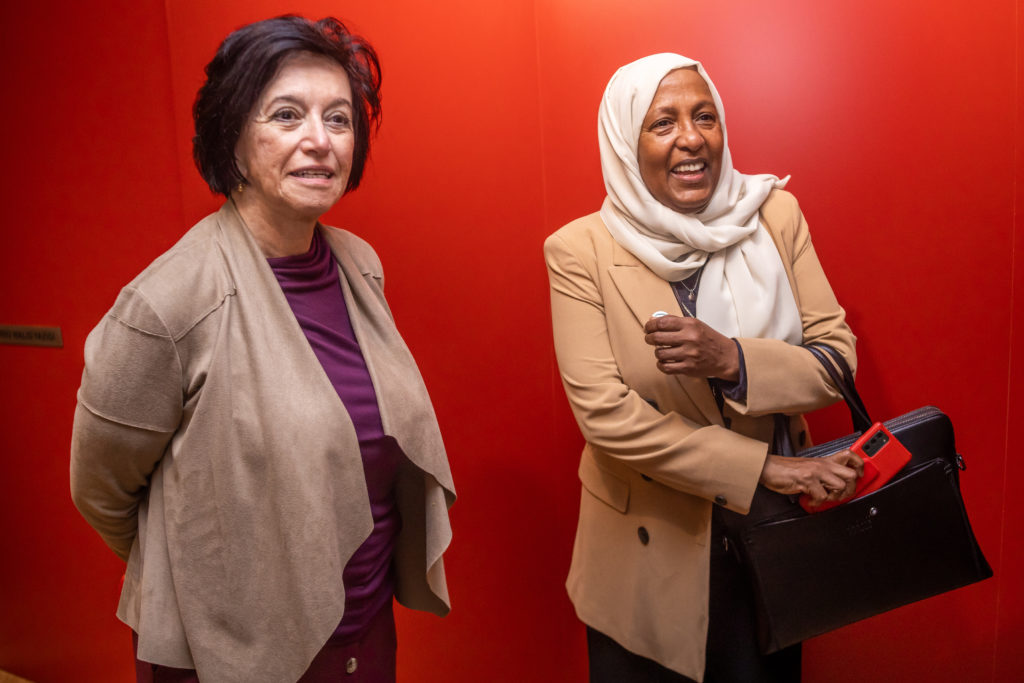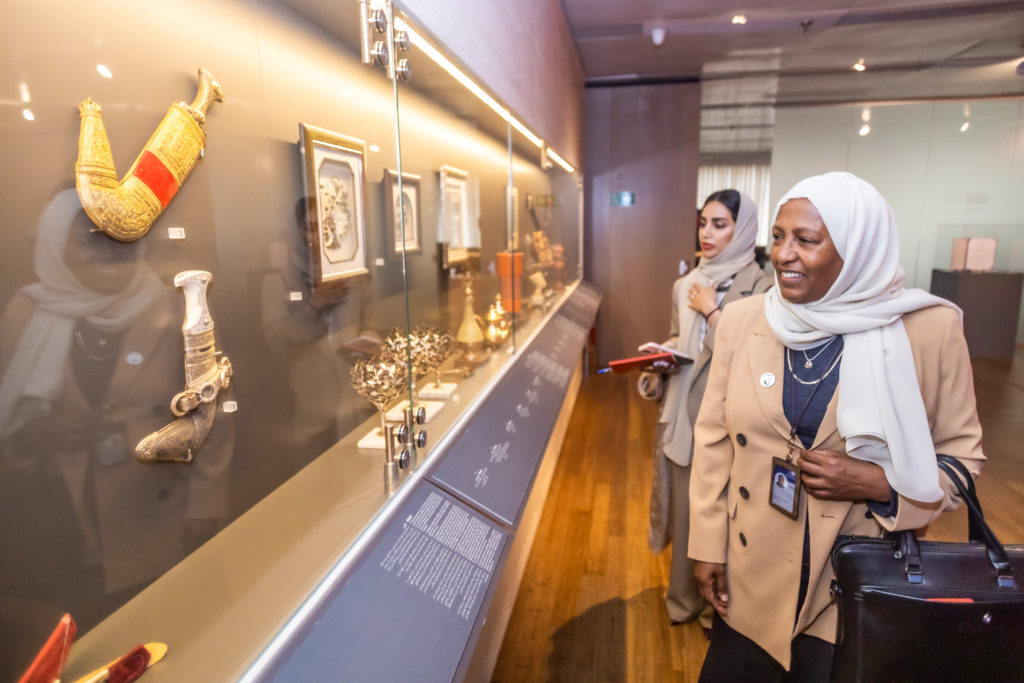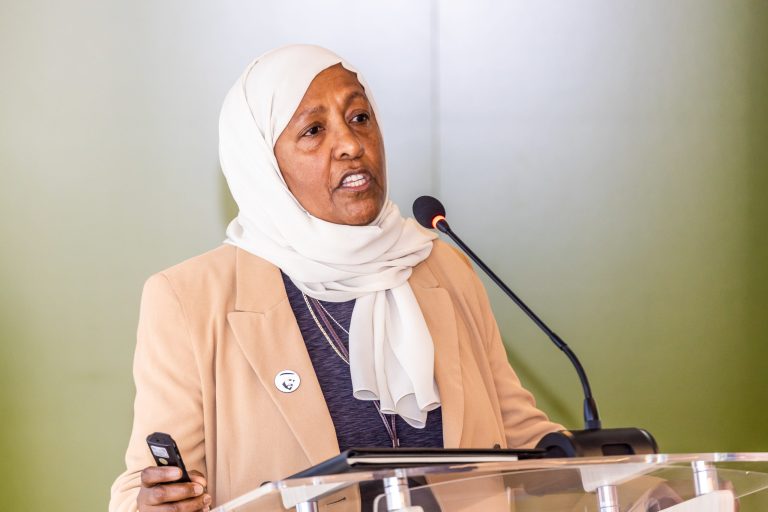São Paulo – The culture of the United Arab Emirates is a mix of something old, something new, something borrowed. It’s a culture of the collective, not the individual. And although the foundation date of the country is only 1971, when the seven emirates merged into a nation, the history of the UAE people is millennial.

So said the UAE’s National Archives Research advisor Aisha Bilkhair (pictured above) during the lecture Social and Historical Overview of the UAE held on Monday (31) in the Arab Brazilian Chamber of Commerce (ABCC) in São Paulo.
Speaking on the various aspects of her country, she gave the example of an ancient custom of the Arab peoples of presenting the bride with a box of gifts including something old inherited from her grandmother, something new given by his husband, and something borrowed from a neighbor. “That’s what our culture is about – something old, something new, something borrowed,” she said.

The researcher gave several examples of archeological findings from her country that date back from a very ancient time, like a 7,500-year-old pearl and an 8,000-year-old pearl uncovered during an excavation, remains from both the Stone Age and the Iron Age, and a letter from prophet Muhammad calling on the people from the region to join Islamism.
“We aren’t new,” said the expert, who gave an overview on foreign rules like the Portuguese and the British in the region, and their battles agaisnt those who already lived there. She also talked about the pearling activity in the country and how the beginning of pearl growing in Japan impacted it.

Bilkhair talked about the sense of collectiveness and cultural transmission in her people. She gave the example of how close families live, with daughters, mothers and grandmothers living in the same house or next door. “Generation upon generation we’ve seen cultural transmission, and this doesn’t happen when generations are separated,” she said. “Ours is an ‘we culture’, not an ‘I culture’. It’s a culture based on the community, not the individual,” she said.
The advisor gave some curious examples of some of the oldest customs of her country like the way they talk to very small children using phrases that come from Egyptian hieroglyphics, including “Nam nam”, which is how babies refer to food. Children are taught that rainy days are happy days, so they must sing and dance when it rains. “It encourages group thinking and celebration,” she said.

Bilkhair also talked about the role of and treatment given to women across different moments in history. She mentioned the respect paid to the footprints of women in the desert that shouldn’t be followed by a man when found, the role they had in solving problems between tribes, and how they’ve been encouraged to study. “We couldn’t skip one day at school,” said the advisor on her own experience.
The event in the ABCC gathered some 60 people. The lecture was opened by ABCC Communication & Marketing vice president Silvia Antibas, who’s herself a historian. She talked about the ABCC’s culture-related initiatives like its cultural branch Arab House, which held the Aisha Bilkhair’s lecture. The event was held in partnership with the Consulate of the UAE in São Paulo.
Translation by Guilherme Miranda




